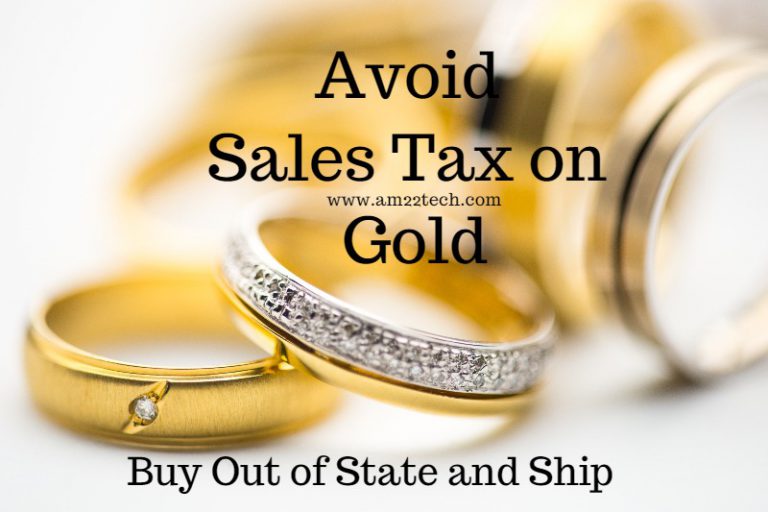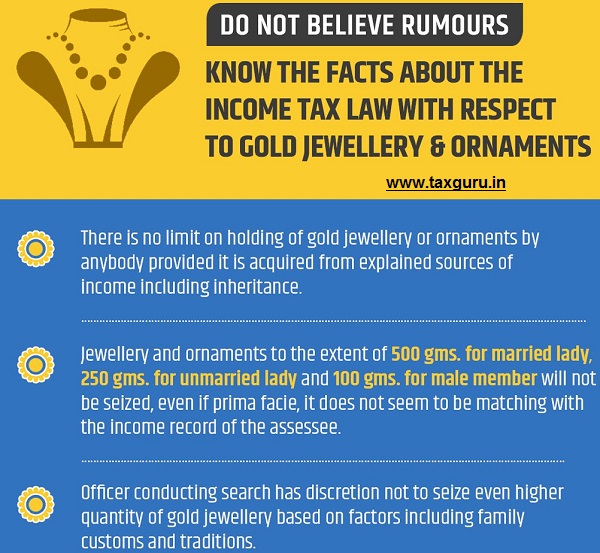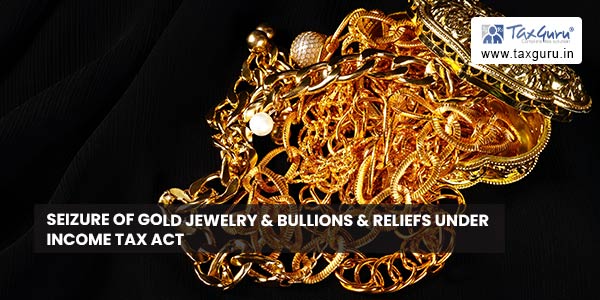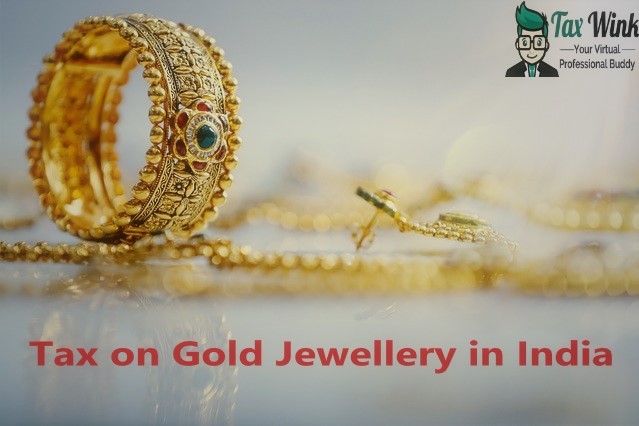Tax On Gold Jewellery In Usa

Imagine walking into a cozy, sunlit jewelry store. The display cases sparkle, filled with delicate gold necklaces, ornate rings, and gleaming bracelets. You're looking for the perfect piece, a timeless treasure to mark a special occasion. But a question lingers in the back of your mind: What will the final cost be, including taxes? The world of gold jewelry and taxes in the United States is a bit like navigating a treasure map, with a few twists and turns along the way.
Understanding the tax implications of purchasing gold jewelry in the US can be confusing. This article aims to clarify the landscape, providing a comprehensive overview of the various taxes that may apply. It will explore how these taxes can differ from state to state, offering practical insights for both buyers and sellers.
The Basics of Sales Tax on Gold Jewelry
The most common tax applicable to gold jewelry is the sales tax. This is a state and local tax levied on the sale of tangible personal property. Gold jewelry undoubtedly falls into this category, much like clothing or electronics.
The specific sales tax rate varies significantly depending on where you are in the country. States like Oregon, Montana, Delaware, New Hampshire, and Alaska have no state sales tax. This can make purchasing gold jewelry in these states quite appealing.
However, in states with sales tax, the rate can range from a few percentage points to over 7%. Furthermore, local jurisdictions, such as cities and counties, may impose additional sales taxes. This makes calculating the total tax a bit more complex. For example, California has a base sales tax of 7.25%, but the rate can be higher in certain cities and counties due to local add-ons.
How to Calculate Sales Tax
Calculating sales tax is usually straightforward. The sales tax rate is multiplied by the purchase price of the jewelry. If you're buying a gold necklace for $1,000 in a state with a 6% sales tax, the tax would be $60. Therefore, the total cost of the necklace would be $1,060.
Most retailers will automatically calculate and include the sales tax in the final price. It's always a good idea to double-check to ensure accuracy.
Exemptions and Special Cases
While sales tax generally applies to gold jewelry, there are a few exceptions and special cases. Certain states offer exemptions for specific types of purchases.
For instance, some states provide a tax exemption on gold bullion or coins purchased for investment purposes. However, this exemption typically does not extend to gold jewelry. The distinction lies in the intent: investment versus personal adornment.
Another scenario involves online purchases. States have become increasingly proactive in collecting sales tax on online transactions. This means that if you purchase gold jewelry from an online retailer, you will likely be charged sales tax based on your shipping address.
The Role of "Use Tax"
Even if you purchase gold jewelry in a state with no sales tax, you might still be liable for use tax. Use tax is a tax on goods purchased outside of your state of residence but used within your state. It is designed to prevent people from avoiding sales tax by buying items in lower-tax jurisdictions.
Use tax rates are generally the same as the sales tax rates in your state. Reporting and paying use tax is typically done when filing your state income tax return.
Although many people are unaware of use tax, it is a legal obligation. State tax authorities are increasingly using data and technology to identify potential use tax liabilities.
Luxury Taxes: A Forgotten Element?
In the past, some states and localities have considered or implemented luxury taxes on certain high-value items. Gold jewelry, especially pieces with significant gemstone embellishments, could potentially fall under this category.
Luxury taxes are often implemented to generate additional revenue from affluent consumers. However, they can also deter spending and drive consumers to shop in other jurisdictions.
Currently, luxury taxes on gold jewelry are not widespread in the United States. However, it's a possibility that could resurface in the future, particularly in states facing budget shortfalls.
Taxes for Jewelry Businesses
It's not just consumers who need to be aware of taxes on gold jewelry. Businesses that sell gold jewelry also have tax obligations to consider. They are responsible for collecting sales tax from customers and remitting it to the appropriate tax authorities.
Jewelry businesses also need to pay income taxes on their profits. Additionally, they may be subject to payroll taxes if they have employees. Accurately managing these tax obligations is crucial for the financial health of any jewelry business.
According to the Internal Revenue Service (IRS), businesses should maintain meticulous records of all sales and expenses. This helps ensure compliance with tax laws and makes filing tax returns easier.
The Impact on the Gold Market
Taxes on gold jewelry can influence consumer behavior and the overall gold market. Higher taxes can make gold jewelry less affordable, potentially dampening demand.
This can have ripple effects throughout the industry, affecting jewelers, gold miners, and suppliers. Some consumers may choose to purchase less expensive jewelry or opt for alternatives to gold altogether.
However, gold has historically been seen as a safe haven asset, particularly during times of economic uncertainty. This underlying demand can often offset the impact of taxes to some extent.
Navigating the Tax Landscape
Given the complexities of sales tax, use tax, and potential luxury taxes, it's essential to be informed. Consumers can research the tax rates in their state and local jurisdiction.
Consulting with a tax professional can also be beneficial. They can provide personalized advice based on your specific circumstances.
For jewelry businesses, staying up-to-date on the latest tax laws and regulations is critical. This may involve seeking guidance from a tax advisor or attending industry workshops.
The Future of Gold Jewelry Taxes
The tax landscape is constantly evolving. Tax laws can change due to legislative action, economic conditions, or shifts in government policy.
It is possible that states may consider changes to sales tax rates or exemptions in the future. Keep abreast of these developments to remain informed.
For example, the National Conference of State Legislatures (NCSL) regularly publishes reports on state tax policies. These reports can provide valuable insights into potential changes.
A Golden Opportunity to Be Informed
Purchasing gold jewelry should be a joyous experience, free from tax-related surprises. By understanding the potential tax implications, you can make informed decisions and budget accordingly.
Whether you are a seasoned jewelry collector or a first-time buyer, knowledge is power. Embrace the opportunity to navigate the tax landscape with confidence.
Ultimately, the beauty and enduring value of gold jewelry transcend any tax considerations. But being tax-smart ensures that you get the most out of your investment, both emotionally and financially.


















